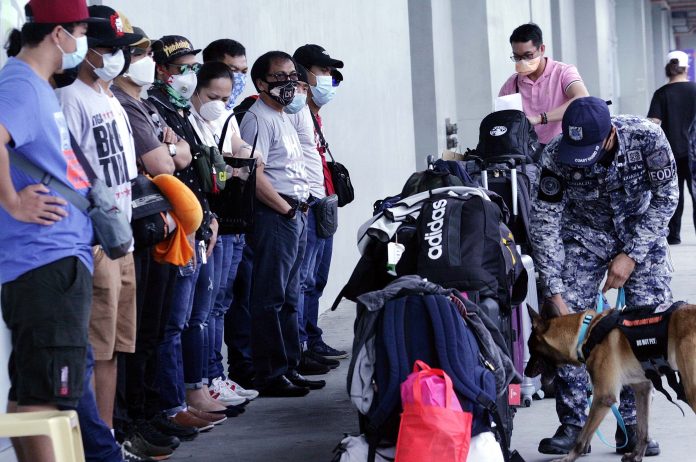The absence of receipts issued by the accused in an illegal recruitment case is not fatal to their conviction if the prosecution establishes, through credible evidence, that the accused has engaged in illegal recruitment.
The Supreme Court reiterated this ruling in People vs Valdez (G.R. No. 251876 March 21, 2022) where the accused were charged with several counts of illegal recruitment committed in large scale under Section 6 of Republic Act No.8042 or the Migrant Workers and Overseas Filipinos Act of 1995, as amended by Republic Act No. 10022, and estafa under Article 315, paragraph 2(a) of the Revised Penal Code.
The accused promised overseas employment to more than 30 individuals in 2014 who allegedly collected more than one million pesos in the guise of using the money to process their documents for deployment.
Under RA 8042, a non-licensee or non-holder of authority is liable for illegal recruitment when the following elements concur: (1) the offender has no valid license or authority required by law to enable him to lawfully engage in recruitment and placement of workers; and (2) the offender undertakes any of the activities within the meaning of “recruitment and placement,” or any of the enumerated prohibited practices.
In the case of illegal recruitment in large scale, a third element is added: that the offender commits any of the acts of recruitment and placement against three or more persons, individually or as a group.
To prove illegal recruitment, it must be shown that the accused gave the complainants the distinct impression that he had the power or ability to deploy the complainants abroad in such a manner that they were convinced to part with their money for that end.
In the instant case, accused admitted collecting fees for medical requirements and Department of Foreign Affairs documents (such as birth certificates and marriage contracts), preparatory to the supposed deployment of complainants.
- The accused had no license or authority to recruit and deploy workers abroad.
- Accused’s acts gave the impression that they could deploy complainants overseas.
- They also recruited more than three individuals.
The absence of receipts in a case for illegal recruitment is not fatal, as long as the prosecution is able to establish through credible testimonial evidence that accused has engaged in illegal recruitment.
Such case is made, not by the issuance or the signing of receipts for placement fees, but by engagement in recruitment activities without the necessary license or authority.
Neither in the Statute of Frauds nor in the rules of evidence is the presentation of receipts required in order to prove the existence of a recruitment agreement and the procurement of fees in illegal recruitment cases. Such proof may come from the testimonies of witnesses.
The absence of receipts for the amounts delivered to the accused did not mean that they did not accept or receive such payments.
While the other complainants did not present receipts, they testified why they believed accused could deploy them after the latter either presented job orders or told them that they would be hired directly.
Even if accused received sums of money from complainants, they were never deployed yet accused did not return the money received. The act of non- reimbursement is included in the definition of illegal recruitment.
Elements of estafa were also proven.
- Complainants were made to believe that accused could legally deploy them overseas based on the job orders presented by the accused.
- Accused’s false pretenses led complainants to part with various amounts of money, hoping for a better life abroad.
Unfortunately, they were never deployed and were never reimbursed. Thus, they suffered damage.
Any person found guilty of illegal recruitment shall suffer the penalty of imprisonment of not less than 12 years and one day but not more than 20 years and a fine of not less than P1,000,000.00 nor more than P2,000,000.00.
The persons criminally liable for the said offense are the principals, accomplices and accessories. In case of juridical persons, the officers having ownership, control, management or direction of their business and the responsible for the commission of the offense and the responsible employees/agents thereof shall be liable.
In every case, conviction shall cause and carry the automatic revocation of the license or registration of the recruitment/manning agency
There are only 17 criminal cases for illegal recruitment and estafa which accounted for 7.62 percent of the total number of OFW cases decided by the Supreme Court from 2015- 2019.
Atty. Dennis R. Gorecho heads the seafarers’ division of the Sapalo Velez Bundang Bulilan law offices. For comments, email [email protected], or call 0917-5025808 or 0908-8665786.









